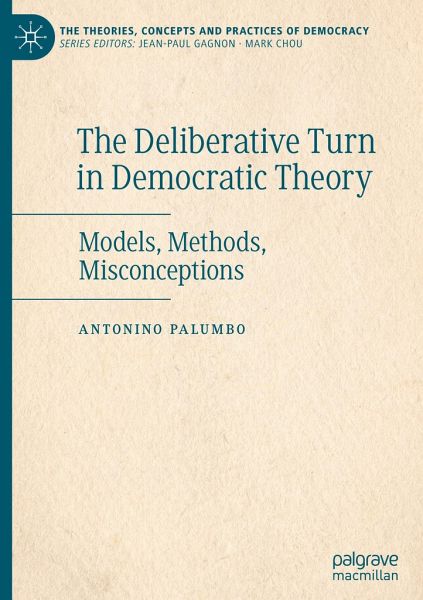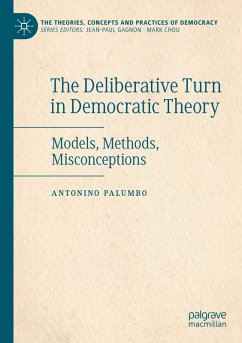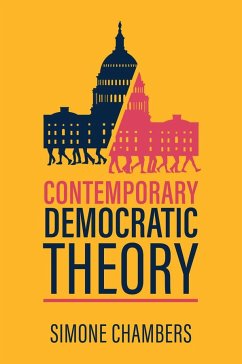
The Deliberative Turn in Democratic Theory
Models, Methods, Misconceptions
Versandkostenfrei!
Versandfertig in 6-10 Tagen
106,99 €
inkl. MwSt.
Weitere Ausgaben:

PAYBACK Punkte
53 °P sammeln!
Thirty years of developments in deliberative democracy (DD) have consolidated this subfield of democratic theory. The acquired disciplinary prestige has made theorist and practitioners very confident about the ability of DD to address the legitimacy crisis experienced by liberal democracies at present at both theoretical and practical levels. The book advance a critical analysis of these developments that casts doubts on those certainties -- current theoretical debates are reproposing old methodological divisions, and are afraid to move beyond the minimalist model of democracy advocated by lib...
Thirty years of developments in deliberative democracy (DD) have consolidated this subfield of democratic theory. The acquired disciplinary prestige has made theorist and practitioners very confident about the ability of DD to address the legitimacy crisis experienced by liberal democracies at present at both theoretical and practical levels. The book advance a critical analysis of these developments that casts doubts on those certainties -- current theoretical debates are reproposing old methodological divisions, and are afraid to move beyond the minimalist model of democracy advocated by liberal thinkers; democratic experimentation at the micro-level seems to have no impact at the macro-level, and remain sets of isolated experiences. The book indicates that those defects are mainly due to the liberal minimalist frame of reference within which reflection in democratic theory and practice takes place. Consequently, it suggests to move beyond liberal understandings of democracy asa game in need of external rules, and adopt instead a vision of democracy as a self-correcting metagame.














